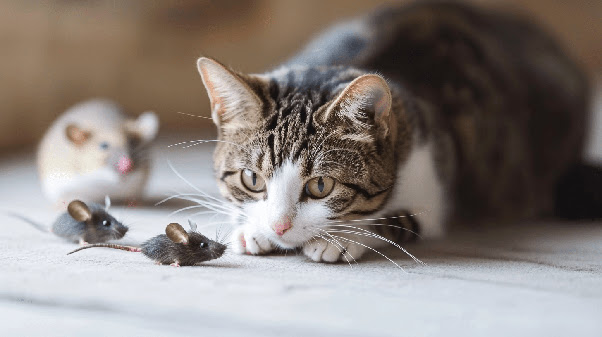does cat can swallow rat whole?
Can cats eat rats?
One of the age-old questions when it comes to feline behavior is whether cats can eat rats. It’s no secret that cats are natural hunters and have a strong predatory instinct, but can they actually consume a rat whole? In this article, we will explore the topic of cats and rat consumption, shedding light on the truth behind this popular belief.
Why do cats eat rats?
Before delving into the specifics of whether cats can eat rats whole, it’s important to understand why cats have an inclination to prey on rodents such as rats. Cats are carnivores by nature, and their hunting instincts are deeply ingrained in their DNA.
While domestic cats are well-fed and often don’t need to hunt for survival, their predatory behaviors still persist. Pouncing on small creatures like rats is an instinctual behavior that stems from their ancestors’ need for food. Cats’ hunting skills were a vital tool for survival, and these skills are still present, albeit in a less necessary context, in modern cats.
Cat and rat interaction
The interaction between cats and rats can vary depending on the circumstances. In some cases, cats may simply enjoy the thrill of the chase and the opportunity to exercise their hunting skills without necessarily intending to consume the rat. Cats have been known to “play” with their prey, enjoying the chase but not necessarily seeing it as a meal.
However, it is not uncommon for cats to actually consume the rats they catch. While rats may not be a part of a domestic cat’s regular diet, they can be seen as a viable food source in certain situations. Rats provide a good source of protein and other essential nutrients, which can be beneficial for a cat’s overall health.
How cats eat rats
When a cat catches a rat, they typically employ their sharp teeth and claws to immobilize the prey. Once the rat is subdued, the cat may proceed to consume it. However, it should be noted that cats are not generally equipped to swallow large prey whole, such as snakes or rabbits. They rely on their teeth and jaws to tear the prey apart into smaller, more manageable pieces.
So, while it is true that cats can eat rats, they do not typically consume them whole. Instead, they tear the prey apart into smaller portions, making it easier to digest and safer for them to consume.
Cat prey behavior with rats
It is important to recognize that the prey behavior exhibited by cats when interacting with rats is natural and instinctive. Cats are skilled hunters, and their ability to stalk, chase, and catch prey is a testament to their predatory instincts.
When hunting rats, cats often display a characteristic crouch, slowly inching closer to their target before pouncing with lightning speed. This hunting behavior is not only fascinating to observe but also serves as a form of exercise and mental stimulation for cats. Engaging in predatory behaviors can help keep cats physically and mentally fit, satisfying their natural instincts.
Rat consumption by domestic cats
The consumption of rats by domestic cats is not something to be entirely discouraged. Rats can carry diseases and pose a threat to human health, so having cats around can help control their population. Cats are known as excellent rodent hunters and have been utilized for centuries to keep rat populations in check.
However, it is important to ensure that the rats a cat consumes are not poisoned or diseased. If you have a rat problem and rely on your cat to catch them, it is crucial to use non-toxic methods of pest control to prevent any harm from coming to your feline companion.
Myth of cats swallowing rats whole
There is a common misconception that cats can swallow rats whole, just like snakes or other animals with flexible jaws. However, cats do not possess this anatomical feature. Their jaws are designed for tearing and chewing, not for engulfing large prey whole.
While a cat might be able to capture a rat in its mouth, it will still need to tear it apart into smaller, more manageable pieces before consuming it. The myth of cats swallowing rats whole likely stems from confusion with snakes or other animals that can indeed consume prey in one gulp.
Rat size restrictions for cats
When it comes to the size of rats that cats can consume, there are certain limitations. Cats are generally capable of hunting and capturing rats that are smaller than them. Rats that are significantly larger and heavier than a cat would likely prove to be a formidable challenge.
It is important to note that cats should not be encouraged to hunt rats that are too large for them to handle. Engaging in a fight with a larger rat can put a cat at risk of injury. As responsible pet owners, it is our duty to ensure our cats’ safety and well-being.
Conclusion
Cats’ natural hunting instincts often lead them to chase and catch rats. While cats can eat rats, it is a misconception that they can consume them whole. Cats rely on tearing the prey apart into smaller pieces to facilitate digestion. The interaction between cats and rats can be both fascinating and beneficial in certain situations, but precautions should be taken to ensure the safety of both cats and humans. Ultimately, embracing a cat’s predatory behavior while understanding its limitations can lead to a harmonious coexistence between cats and rats.













